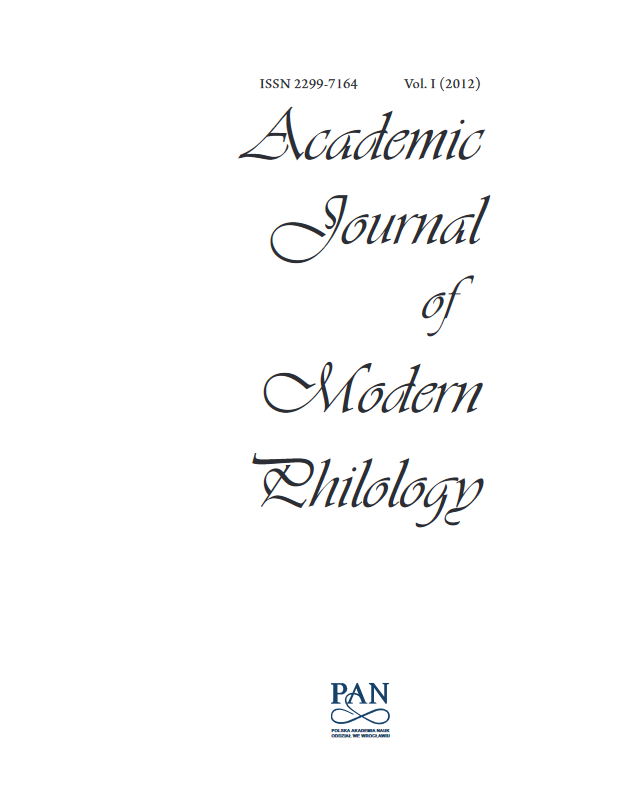Shall in Present-Day English
Shall in Present-Day English
Author(s): Maja LubańskaSubject(s): Language studies, Language and Literature Studies, Semiotics / Semiology, Syntax, Philology
Published by: Komisja Nauk Filologicznych Oddziału Polskiej Akademii Nauk we Wrocławiu
Keywords: auxiliary; shall; predicate; Old English; demotic meaning
Summary/Abstract: The paper aims at presenting the contemporary usage of the verb shall in Modern English. The traditional principles governing the usage of shall constitute a complex paradigm in which the implications of different forms change according to the person of the subject. The statistics show that the verb shall experienced a dramatic fall in frequency of use between the early 1960s and 1990s. The author is aiming at presenting the evolution of the verb shall throughout the centuries, its reorganization and the way it has altered. The Old English shall expressed obligation/necessity whereas the Middle English usage indicated to the predicative element of the verb in question. Furthermore, the author explores the difference in application between will and shall. The semantic shift of shall appears to be a natural consequence of the competition it lost to will. Moreover, in shall seems to be retracting to the narrow niche of seldom usage. The article also indicates to the use of shall in present-day English both in American and British varieties. In American English, which is commonly assumed to be more advanced and open to change than British English, shall seems to survive in the contexts where it expresses deontic meaning.
Journal: Academic Journal of Modern Philology
- Issue Year: 2012
- Issue No: 1
- Page Range: 65-74
- Page Count: 10
- Language: English

